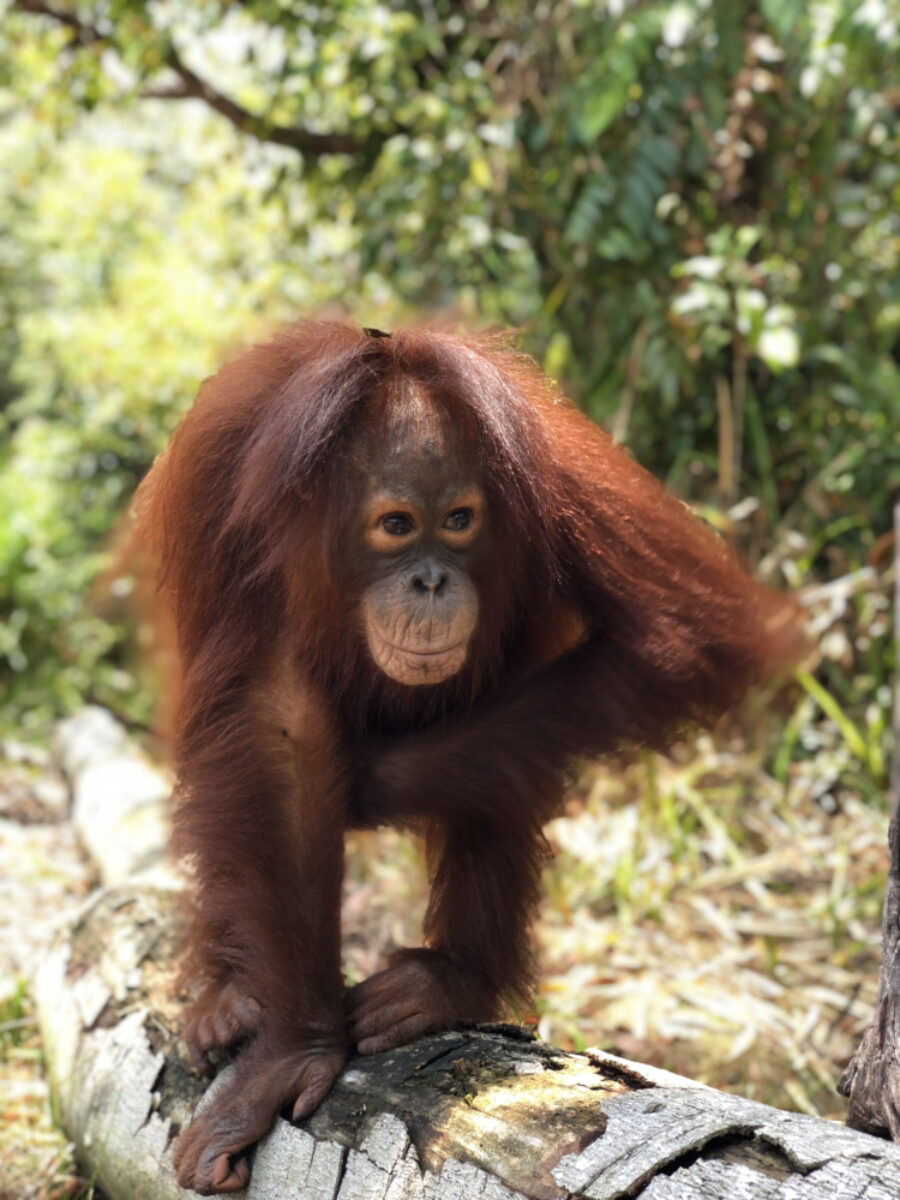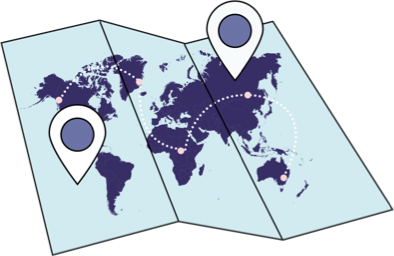Orangutans: why you must avoid animal shows
World Animal Protection believes it is not possible to create the environment needed for orangutans, elephants and many other animals in captivity. To get them to interact with humans in the way organised shows need involves shackling and controlling the animals. The actions they then show are all unnatural behaviours for orangutans.
To combat the problems facing orangutans, we believe you should move away from the focus of a trip to Borneo being solely about orangutan experiences. We shouldn’t promise people that they’ll see an orangutan and it shouldn’t be the only thing on the trip itinerary. In our view, even orangutan feeding centres can cause problems — some guides are unlicensed and over-promise what tourists can experience. It’s vital that tourists don’t get too close to orangutans when they’re feeding, as they can pass on diseases and lead to unnatural interactions.
This is dangerous for these semi-wild orangutans, as they will then interact with fully wild orangutans and pass on diseases and behaviours. This isn’t to say there aren’t ethical orangutan conservation sites out there, but for me, the change comes when an organisation uses orangutans for commercial value. If people are paying for an orangutan experience, it can stop being about the welfare of the orangutans and become a more transactional experience.
Ironically, studies we’ve done of tourists show that they’re willing to work harder and spend more for authentic experiences. So, if that involves lots of trekking and spending more to ensure that the animals are well-treated, they’re happy to do so. This is where tourism can play a major part in changing how animals are treated. Spend your money on better quality, less invasive trips. Put simply, if we don’t spend our money on cruel, poorly organised, wildlife as entertainment venues, then they won’t proliferate.
If you do want to see animals in captivity, look for organisations that not only allow their animals to live in semi-wild environments but also work to reduce captive animals. For example, one elephant sanctuary will only buy elephants from people who use the money to move away from elephant rides and work — the idea is to reduce the total number of elephants in captivity and care for existing ones.

Stop selfies
Secondly, we need to end the ‘selfie with wildlife’ culture we have. It’s unnatural for animals. We teamed up with Instagram, WWF and other organisations to create an alert system for when people post pictures with animals, such as #slothselfie or #elephantride. Instagram users will see an alert warning them about the ethics of such pictures when they post. The message reads in part “You are searching for a hashtag that may be associated with posts that encourage harmful behaviour to animals or the environment.”
Wildlife selfies have grown by 292% since 2014, and the problem is that these interactions are stressful and unnatural for the animals. To get the animals to behave, they’re often weaned from their mothers far too young or undergo painful training processes. Again, this is where tourists and tourism can make a difference. Being aware of this and staying away from operators who provide such experiences can help change the industry. And for those that don’t see the problem — perhaps they’re the sort of tourists we don’t need.




